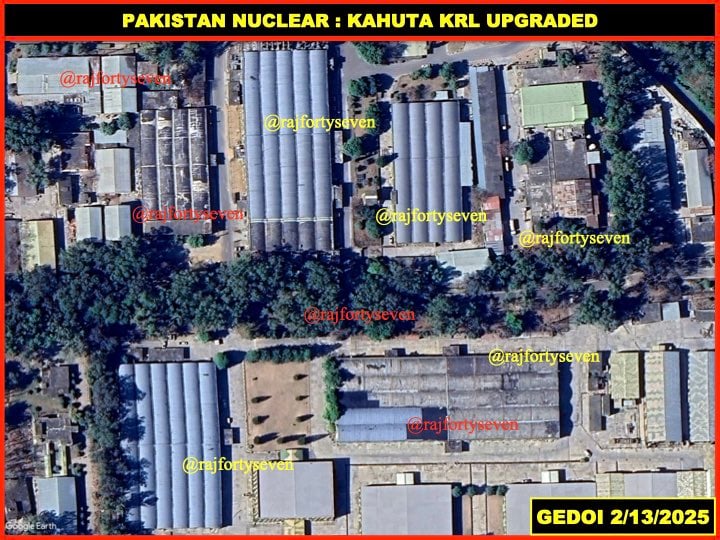Pakistan Reportedly Enhancing Nuclear Fuel Reserves at Kahuta: Former Indian Colonel

Recent reports have sparked new security concerns in the South Asian region as Pakistan is said to be amassing nuclear fuel beyond what is necessary for its declared policy of minimum deterrence. This claim was made by Colonel (Retired) Vinayak Bhat, a former officer of the Indian Army and an expert in satellite imagery analysis, who asserts that the Kahuta Research Laboratories (KRL) facility has undergone significant upgrades to bolster its uranium enrichment capabilities.
Colonel Bhat, recognized for revealing Pakistan's secret nuclear activities in the past, shared a satellite image on the social media platform X. He remarked, "Pakistan, a nation with terrorist affiliations, is gathering more nuclear fuel than needed for its minimum nuclear deterrence. The signs at KRL Kahuta strongly suggest all equipment and buildings have been enhanced to increase enrichment and production of fuel for additional nuclear weapons."
Situated in Pakistan's Punjab province, Kahuta has been the center of the country's nuclear enrichment initiatives. According to Bhat, recent developments observed through satellite images indicate a possible expansion drive aimed at producing more nuclear warheads.
The Federation of American Scientists estimates that Pakistan currently holds approximately 170 nuclear warheads, ranking it as the seventh-largest nuclear power worldwide. However, experts from the Center for Arms Control and Non-Proliferation caution that Pakistan is not only maintaining but also upgrading its nuclear arsenal. Their forecasts suggest the country could have between 220 and 250 nuclear weapons by the end of 2025.
The credibility of Colonel Bhat adds weight to these assertions. With 33 years of military experience, much of which was spent in sensitive and high-altitude areas like Jammu & Kashmir and the Northeast, he has dedicated over two decades to analyzing high-resolution satellite images. His past revelations brought Pakistan’s clandestine Kirana Hills nuclear site to international notice, a location subsequently targeted during India’s precise missile strikes in Operation Sindoor.
Pakistan's delivery mechanisms for nuclear weapons encompass aircraft, land-based ballistic and cruise missiles, and potentially submarine-launched platforms in the future. The expanding arsenal and ongoing modernization efforts occur amid tense relations with India and a precarious domestic economy, raising questions about the country's nuclear strategy and future intentions.
International observers and Indian defense analysts are monitoring the developments at Kahuta closely, apprehensive that Pakistan’s growing stockpile could impact the strategic stability of South Asia.



















